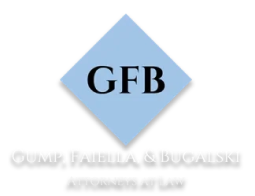Memory loss, headaches, and confusion are just some of the symptoms of concussions. Concussions are injuries to the brain that can cause temporary loss of normal brain function. So when you hear concussion think brain injury.
The human brain is made of soft tissue and is protected by the skull, but when the skull sustains a hard blow or fast impact, it can cause serious harm to the brain. This can cause potential tearing of blood vessels, bruising of brain tissue, and pulling of nerve fibers. Contusions and hematomas, a blood clot that collects in or around the brain, can also occur. Swelling of the brain is a serious issue because the brain cannot escape the skull, and severe swelling can compress the brain and its blood vessels, thus limiting the flow of blood to the brain. Strokes can arise from lack of oxygen and necessary sugars in the brain. Severe, even fatal, brain injuries can occur if proper treatment isn’t received after enduring a concussion.
Second Impact Syndrome is acute, fatal brain swelling. It occurs when the head sustains a hard blow after a previous concussion did not completely heal. This in turn causes the brain to swell rapidly, which is very hard or impossible to control. Second Impact Syndrome occurs most in contact sports such as boxing, football, ice or roller hockey, soccer, baseball, basketball, and snow skiing. An average of 1.5 deaths per year result from sports related concussions, and in most cases a concussion that went undiagnosed had previously occurred.
Signs of a concussion or brain injury:
- Amnesia
- Confusion
- Headache
- Loss of consciousness
- Balance problems
- Double or fuzzy vision
- Sensitivity to light or sound
- Nausea
- Feeling sluggish
- Memory or concentration problems
- Slowed reaction time
- Feeling unusually irritable
Warning signs of serious brain injury:
- Constant or reoccurring headaches
- Inability to control motor functions, trouble with balance
- Hypersensitivity to light or sound, inability to hear, taste or see
- Dizziness
- Easily distracted, trouble concentrating, feeling disoriented
- Confusion
- Slurred speech, trouble finding “right” word, difficulty expressing words or feelings
The Return to Play Laws require an athlete who is suspected of sustaining a concussion to sit out of the game, “When in doubt, sit them out”. Under most “return to play” laws if an athlete is suspected of having sustained a concussion, the athlete must be evaluated and cleared by a practicing health professional before returning to practice or competition. This law or laws with similar principles have been passed in all 50 states and the District of Columbia. Unfortunately, there are many young players who are still put at risk by coaches and teams who do not follow the laws. Those who are responsible for the safety and wellbeing of athletes should be prepared to help in any case of a concussion or head related injury. Recognizing the symptoms and signs of injuries due to sudden impact is part of coach’s training. Failure to recognize or treat injuries or ignoring the symptoms is negligent and dangerous to athletes.
Taking safety precautions, such as wearing American Society for Testing and Materials (ASTM) approved helmets or headgear, using a mouth guard and using proper tackling or checking techniques in contact sports, could reduce the chance of suffering a concussion. Never let your child use old or damaged equipment.
If you or your child has suffered a concussion in an organized sport, you have the right to seek legal council. We represent injured athletes across the United States and have helped grade school, high school, college athletes recover substantial compensation. We are happy to meet with seriously injured athletes at home. For a free initial consultation or to schedule an appointment today call 1-888-262-2718 or fill out our contact form.
The post Get Your Head Out of the Game: Sustaining Serious Head and Brain Injuries in Sports appeared first on Gump & Faiella, LLC | Missouri.

